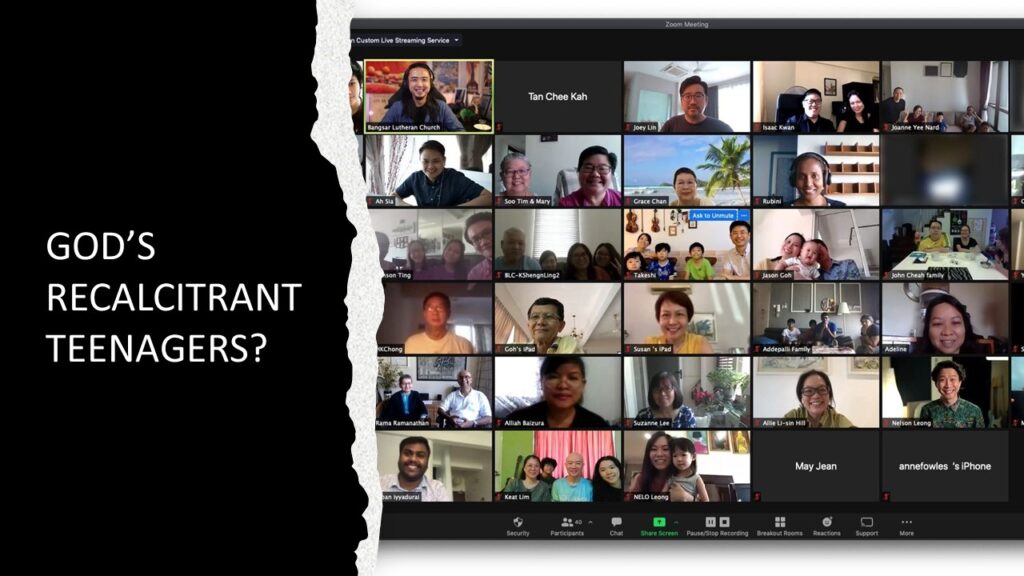Lectionary readings for Sunday (tomorrow).
Nogalski on Hosea 11:1-11
The images in Hosea 11:1-8 depict YHWH as a tender, loving father in a way unlike any other biblical text. The passage’s form comes close to that of a soliloquy, providing the reader the ability to hear YHWH’s internal struggle over whether to punish his wayward child.
The images of tenderness depicting YHWH’s paternal nature do not reflect the machismo of the warrior God that comes to mind when most people consider the God of the Old Testament.
Rather, Hosea 11 expresses the relationship between God and Ephraim/Israel through the eyes of a parent who longs for a time when parenting was simpler, and who wishes his/her recalcitrant teenager would willingly choose to obey.
The father calls to the child, but the child goes in the other direction (11:2). The parent teaches the child to walk, and carries him when he cannot, but the child does not acknowledge the parent’s actions (11:3). The parent playfully kisses the child (11:4). The parent’s compassion creates second thoughts about the punishment of the child (11:8).
These images of a conflicted father intertwine with accusations against his wayward son and culminate in two separate statements of God’s intention.
First, God will withhold wrath, choosing to take the high road because “I am God and not man” (11:9). Second, and more ambiguously, God will bring the exiles home from the lands to which they have been sent (11:10b-11). This second image shows God’s restorative intentions, but a return presumes that the children have been expelled from the land.
In the end, the message of compassion and the presumption of judgment stand over against one another, furthering the impression of a parent struggling mightily over the question of how to deal with a child who will not listen.
For many, the idea of God vacillating runs counter to their preconceived notions of God’s sovereignty. The biblical God, however, is not a mechanistic deity whose actions and decisions are set forever in stone.
Rather, the biblical God tempers wrath with patience and compassion (Exod 34:6-7). In Hosea 11, the soliloquy characterizes God as agonizing over whether to give up on a wayward child.
God has invested much in a son who continually turns his back on the parent who raised him, taught him to walk, fed him, and nurtured him to maturity. Yet God cannot help loving this child, even though the child prefers other gods (11:1-2).
Moreover, although God trained and healed this child, the child accepts no limits (11:3-4). Thus, while God’s character defaults to compassion (11:8b) and refuses to give in to human urges of retaliation (11:9), God abhors the behaviour of this child. In the end, the vacillation of YHWH shows God’s compassion at war with God’s holiness.
This dialectic between God and God’s people remains even to this day.
God’s children still find many ways to turn their backs on God, yet God still wants their acknowledgment, desires that they recognize God’s compassion, and hopes they will extend that compassion to others in God’s name.
Yet while we are quick to call upon God’s compassion for ourselves and for those like us, we are just as quick to want God’s punishment for those who cause us pain.
As well, we know we should offer sustenance in Jesus’ name (Matt 25:40), but we usually turn our backs on those in need.
When we compare ourselves to the loving parent who has reared us, how do our lives stack up? Are we rebellious children, or are we willing to obey? Are we oblivious to what God has done for us and how our actions grieve God? Are we willing to deny our sense of anger and justice so we can seek to show compassion instead?
The above is taken directly from pages 162-164 of James D Nogalski, The Book of the Twelve (Hosea-Jonah), Smyth and Helwys Bible Commentary CD-ROM, 2011. I composed the title. For ease of reading, I added more paragraph breaks. I made no other changes to the text.
I highly recommend the commentaries in the Smyth and Helwys series . Buy them for yourself or for preachers whom you’d like to encourage. Great gifts for birthdays, graduations, Christmas!
You can read about Professor Nogalski on the Baylor University website. He serves in that university as Director of Graduate Studies and Professor of Hebrew Bible/Old Testament.
To learn more about Rama, click here.


